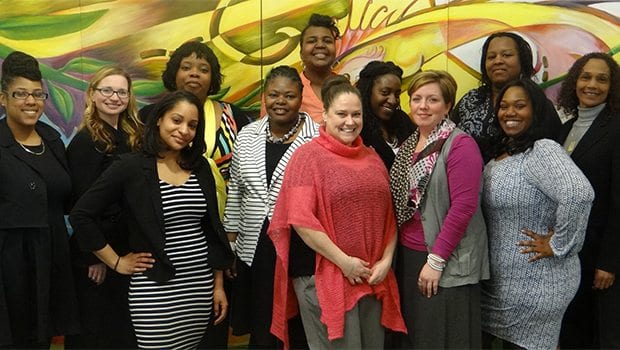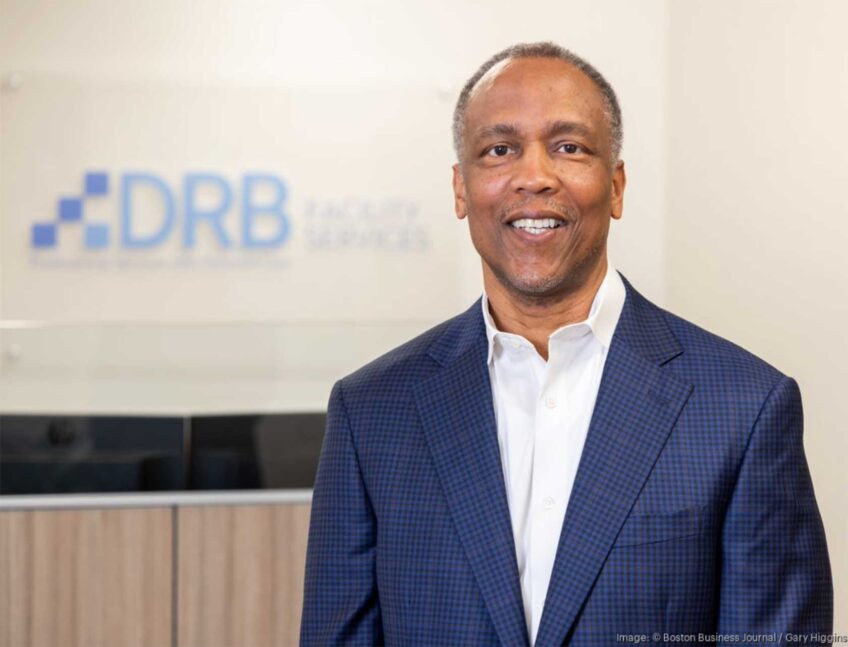
The City of Boston’s Jobs and Community Services Office recently awarded over $1 million to 19 community-based employment and workforce development programs.
Individual grants, announced last week, range from $25,000 to $90,000 and are administered through the Neighborhood Jobs Trust, one of two funds supported by “linkage” contributions from large-scale real estate development projects as a means of providing benefits to Boston residents who may be affected by development in their neighborhoods. Linkage fees are a provision of the Article 80 development process, and they also support the Housing Trust Fund.
“The purpose of the NJT is to take those linkage fees and redistribute them back into the community, focusing on job training and placement,” said Trinh Nguyen, who directs the JCS program.
What’s notable about this round of grants, she said, is an intentional emphasis on “permanent and quality” jobs. She said JCS made a concerted effort to allocate funds to training programs that are tied to areas of growing job opportunities and that take an integrated approach, crossing industries or services.
Nguyen cited two grant recipients as particular examples of integrated training tailored to a ready job market: BEST Corp. Hospitality Training Center received a $90,000 grant and is collaborating with Local 26 of the Hotel Workers Union and hotel companies to train and place employees in hotel jobs in the South Boston Convention Center area; the Boston Chinatown Neighborhood Association is using a $50,000 grant to help train grocery store workers and place trainees in the new Roche Bros. and Whole Foods stores slated to open in Downtown Crossing and in the South End.
Another recipient is Project Hope, a Roxbury nonprofit serving low-income and homeless women and families. The $50,000 NJT grant will fund a portion of a program to train women for call center and front-office positions in medical centers, according to Larry Elgart, Project Hope’s director of workforce development and employer partnership. The 12-week program aims for placements in sustainable and career-track jobs that can lead to supervisory or patient service coordinator roles, Elgart said.
Action for Boston Community Development received $50,000 for its Early Education NextSTEPS program, which prepares Boston residents with little higher education for entry-level jobs such as assistant teacher in the early education field.
Stacy McHugh, NextSTEPS coordinator, said the 15-week program involves coursework in child growth and development and college-level writing, non-credit training in CPR and first aid, and career and life skills training such as resume preparation and personal financial management. After the initial session, participants who complete 450 hours of work in a childcare center are eligible for certification with the Massachusetts Department of Early Education and Care.
“There is a huge need [in the early education field],” she said. “And no one else is offering this initial training for free.”
Last year, 29 trainees ranging in age from 17 to 65 went through the 15-week program and the majority of them now have paying jobs in the field. One trainee who earned the EEC certification has seen her hourly wage rise from just over minimum wage to $13.50, according to McHugh.
“Early education is not a field where people make a lot of money,” she said, “but being in the classroom may not be the long-term path for all of them. Having that experience in a classroom can open up a wealth of possibilities. Trainees in our program say, ‘I want to be on a career path. I want to do better for my children.’”
The JCS grant money will allow NextSTEPS to continue on into the spring session, McHugh said, though the program continues to seek more long-range funding.
The Neighborhood Jobs Trust funds are distributed periodically through a competitive request for proposal process when enough funds accumulate, Nguyen said. The recent round of grants is the first to be awarded in about three years, but Nguyen said JCS aims to make it a more regular process, as nonprofits benefit from a more predictable schedule of funding opportunities.
The other grant recipients are Asian American Civic Association, Building and Construction Trades Council of the Boston Metro Area, Community Servings, Friends of Boston’s Homeless, International Institute of Boston, Jewish Vocational Service, Morgan Memorial Goodwill Industries, New England Shelter for Homeless Veterans, Operation A.B.L.E., Project Hope, Project Place, St. Mary’s Center for Women and Children, STRIVE: Boston Employment Service, Urban League of Eastern Massachusetts, WORK Incorporated, YMCA of Greater Boston and YouthBuild Boston. Some of the programs offer tailored services to particular groups of jobseekers, such as veterans, women, and English language learners.






